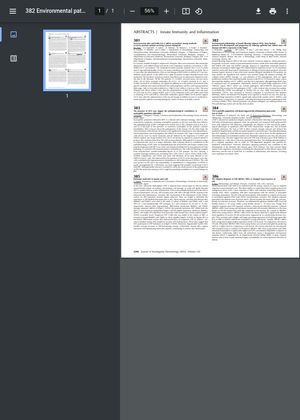Environmental Pathobiology of Frontal Fibrosing Alopecia: Does Linalool Promote FFA Development and Progression?
November 2022
in “
The journal of investigative dermatology/Journal of investigative dermatology
”
frontal fibrosing alopecia FFA linalool epithelial hair follicle stem cells K15+ epithelial hair follicle stem cells K15 expression MICA CD8+ T cells IFNg secretion CD68+ macrophages perifollicular macrophages pathological EMT personal care product allergens hair follicle stem cells immune response macrophages epithelial-mesenchymal transition allergens

TLDR Linalool in personal care products may contribute to hair loss by damaging hair follicle stem cells and triggering harmful immune responses.
Frontal fibrosing alopecia (FFA), a common form of hair loss, is believed to be triggered by exposure to certain ingredients in personal care products. The study found that 76.2% of FFA patients showed sensitization to allergens found in these products, with linalool, a common terpene fragrant, being one of the most identified allergens. The research provided preliminary evidence that exposure to 1% linalool decreased the number of K15+ epithelial hair follicle stem cells (eHFSCs) and their K15 expression. Linalool also increased the expression of the "distress" signal, MICA, which can activate harmful interactions and promote IFNg secretion by FFA-pathogenic CD8+ T cells. Furthermore, linalool increased the number of perifollicular CD68+ macrophages in healthy hair follicles ex vivo and promoted pathological EMT in human eHFSCs. The findings suggest that certain personal care product allergens can promote FFA and should be avoided.



